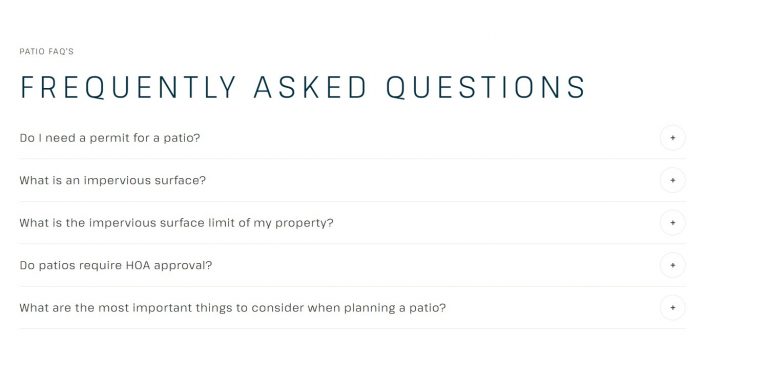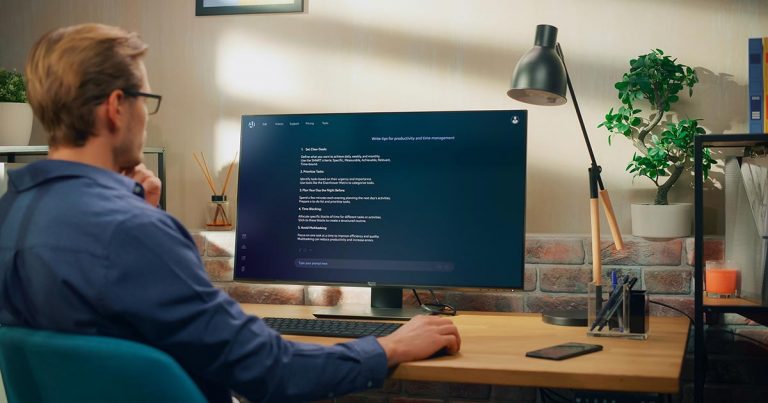With the changing search landscape and AI growth in search queries and results, there is a rising question of what makes a website great in 2025. The core principles have not changed, speed, UX, clear menus and CTAs are always going to be important, but the overall purpose of the site and the message behind it is now the driving force behind improving performance. Google has been “cleaning” the off topic articles and demoting sites without a clear purpose, with mixed messaging and off-industry sponsored articles. So how do you build a site in 2025 in order to create a digital platform that brings conversions and serves clients and broad audiences while still creating placements in the AIO (Artificial Intelligence Overview) results? You don’t just build a good site, you have to develop a great one. We list 10 elements that make a good a website great. In order to secure SERP placements and bring audiences to your websites follow these simple recommendations:
1. Intent Backed up by Strong Content
Think about this from the perspective of your website’s user. What problem are you resolving? What product are you offering? What question are you answering? Soon, all of the questions will be answered by the AI, either directly from ChatGPT and other Large Language Models. But this does not mean that your message or your site’s purpose no longer matter. The AI is where the question is being asked, but the answers are still derived from the content written by us -humans. The actions and conversions still happen on your website. ChatGPT isn’t magically sending clients to your online store or filling out forms for your services. The more clearly you specify the overall intent and purpose behind your site, the more you will be considered as an expert and the helpful source in the matter. If you are a landscaping company, your site should clearly state what services you are offering, what geographical area you are serving and what are the benefits of working with you. Don’t confuse your audience with additional services and unfocused pages that touch on unrelated topics.
2. Design

Design matters today and it did years ago. Since the landscape of information and companies is continuously growing, now it is even more significant. What will set you apart from competition? You generally have less than one second before an opinion is formed about your business from the time the user enters your site. This does not refer specifically to the functionality as we will talk about this later. This is the very first impression – are you a legitimate company, is the site up to date and also, what emotion did your site evoke when it loaded on the user’s screen. Work with a design company that can help you take your business from generic to as unique as you are.
3. UX and Functionality
Everything from menus to CTAs and navigation falls into this category. You have to have a great website that functions properly, is easy to navigate, have many single touchpoints to take user to their intended destination. Think about logical navigation paths and hierarchy of content and pages. Build with SEO in mind where your heading structure follows the general guidelines. Consider ADA compliance, font selection, media and best practices when building your website in 2025.
4. Content

Content is the single most important element to creating websites that perform in 2025. It has to come from personal expertise, your value proposition, years of working in the industry where you have the ability to share unique business knowledge. The contradicting part about the content that performs well in searches and AI results is content NOT written using AI. The internet space is currently being flooded with massive amounts of content created using ChatGPT and other LLMs. These articles are generally unoriginal and built only for SEO purposes, not the actual reader. Write content that’s personal, helpful and unique in order to compete in the SERPs. Stick to topics related directly to your business and services you are offering. The more focused the content, the better the performance of your pages and posts.
5. SEO
Because of the AI entering the search space, there are a lot of speculations that SEO is dead. That’s not really true, because if this was the case, what would govern the search results. The main principles of SEO are very much still in place. Good websites with decent speed, performance, best practices, meta heading tags and descriptions, navigation hierarchy and structure will still outperform sites that have not been created with SEO in mind.
6. Infrastructure
The CMS that the sites are built with, the server they live on, uptime, mobile performance are only going to continue to gain importance. With faster and better access to information the sites that will perform better will be the ones that deliver the best and fastest experience for the users. Don’t overlook infrastructure and stay away from inexpensive shared hosting options that affect your site’s uptime.
7. Security
Another factor that is considered important this year is website security. This no longer only refers to https and SSL certificates. The type of certificate your site carries, updated software versions, server-level security all will distinguish the good and great sites.
8. Social Proof
Client testimonials, interactions with your social media are all signals that help establish the relevance and reliability of your business. Make sure you add them to your website, encourage your clients to leave testimonials, engage in social media on a level that best suits your business.
9. Conversion tools
A great website exists in the first place to deliver conversions and results for your business. Make sure it has been created with this purpose in mind. Easy navigation and access to your phone number, online shop or contact form are essential in creating opportunities for conversions. Think about user flow and focus on all areas when gaining a new client or completing a sale will be happening.
10. Mobile First

Mobile optimized used to be a requirement. Today, mobile-first websites are what the website designers and developers are striving for. Your experience on a mobile phone has to be intuitive. Mobile web apps are becoming more popular and we believe in building them in parallel with the desktop versions. A well designed website will behave like an app on the phone delivering an outstanding experience for the users.
Bring in users to your website via organic sources to help with building the reputation of your business. The more organic traffic your site receives and the better the engagement on your site, the more content will be featured in SERPs and AI. Main principles of good website design continue to apply in 2025, but there are a few adjustments that must be made to help appear in the AI search results.




